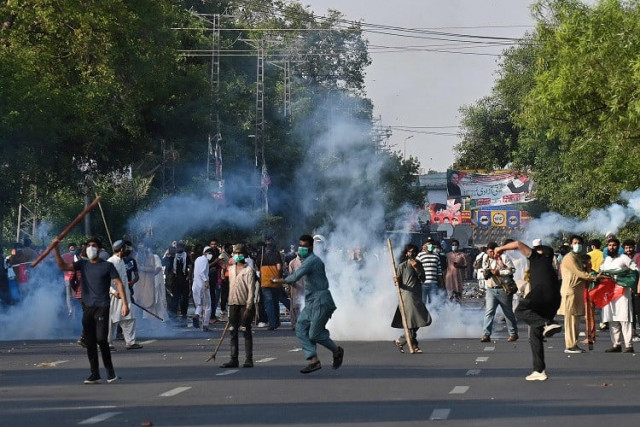Political crisis unnerves friendly countries
China, Saudi Arabia and UAE discreetly try to help defuse tension

Pakistan’s friends are increasingly growing concerned over the increasing political instability in the country and conveying discreet messages seeking a resolution of the crisis through negotiations.
Diplomatic sources familiar with the development told The Express Tribune that China, Saudi Arabia and the United Arab Emirates in particular were worried over the deteriorating political stability in Pakistan.
When Chinese Foreign Minister Qin Gang recently undertook his maiden trip to Pakistan, he publicly expressed concerns over the current political situation and stressed the need for reaching a consensus to deal with the crisis.
The Chinese foreign minister was in Pakistan on May 5 and 6 on his first visit to Islamabad.
Read US expert raises concerns over political instability after Imran's arrest
At a news conference with Foreign Minister Bilawal Bhutto-Zardari, the top Chinese diplomat expressed his worries about Pakistan’s increasing instability, telling the country to overcome political differences to pave the way for economic progress.
“We sincerely hope the political forces in Pakistan will build consensus, uphold stability and more effectively address domestic [as well as] external challenges so it can focus on growing the economy,” Qin said.
This was unusual on the part of China, which usually works behind the scenes to convey its concerns on any issue.
There were reports that the UAE president in a telephonic conversation with the Pakistani army chief called for unity in the country, a subtle message to resolve issues through talks.
It is believed that Saudi Arabia is also keen to seek some semblance of political stability returning to Pakistan.
Although there was no official confirmation, the visit of the deputy interior minister of Saudi Arabia was also seen in the context of efforts by Pakistan’s friends to defuse the ongoing political tensions.
Read more US, UK back ‘rule of law’ after Imran’s arrest
Saudi Arabia and the UAE played a role in defusing the political tensions in Pakistan in the past as well.
The most prominent role Saudi Arabia played was after the 1999 coup when Riyadh managed to secure the release of former premier Nawaz Sharif as part of a deal with then military ruler General Pervez Musharraf.
Some observers believe that Pakistan’s friends may be concerned over the political stability in the country but none of them was willing to directly become involved.
“Yes, our friends indirectly do keep on passing messages to all sides to put our house in order,” said a source.
However, the source added that the current political situation in Pakistan was so toxic that no country could take the risk of directly interfering in its internal matters. “But the discreet messaging will continue,” the source continued.


















COMMENTS
Comments are moderated and generally will be posted if they are on-topic and not abusive.
For more information, please see our Comments FAQ